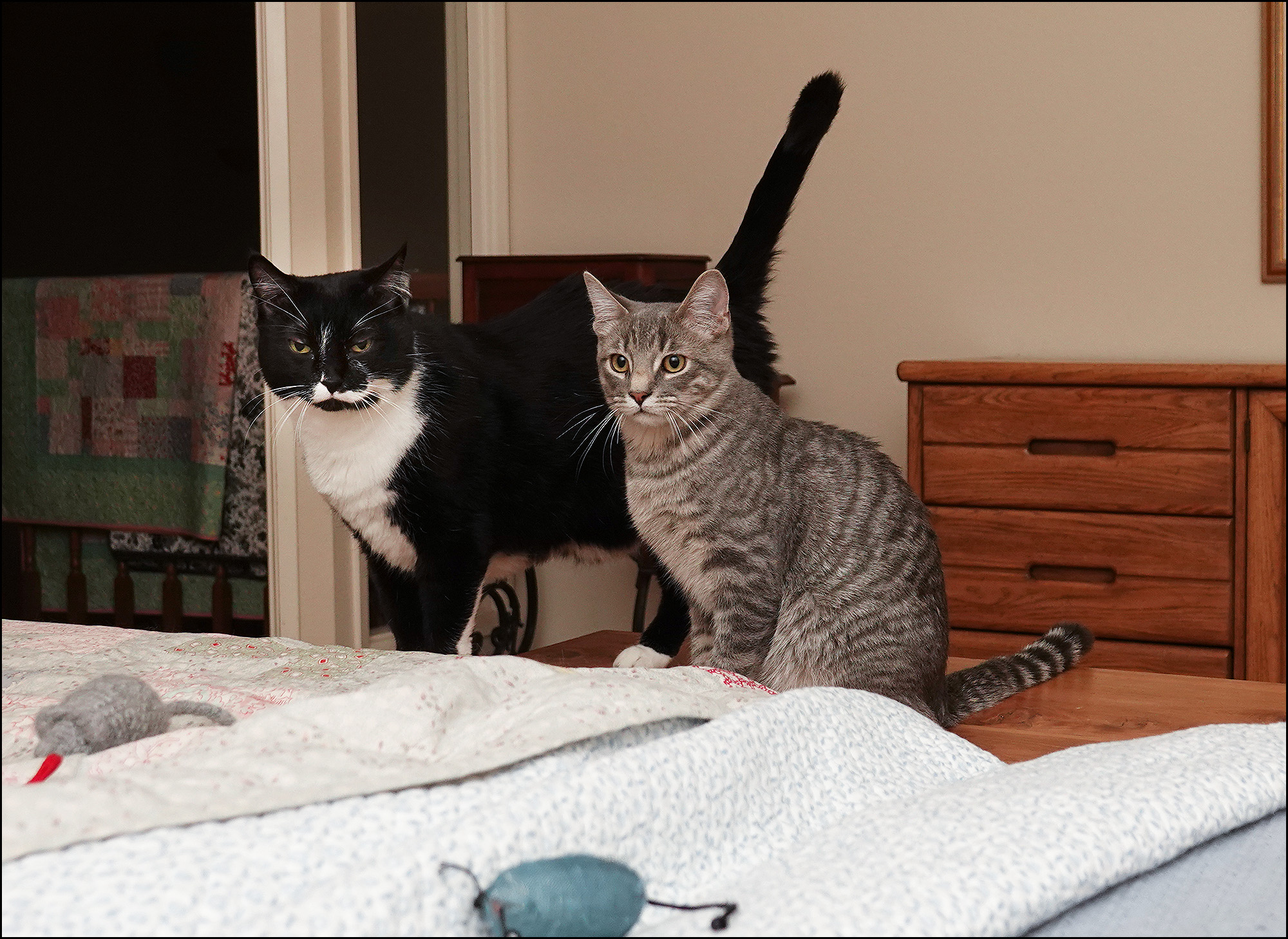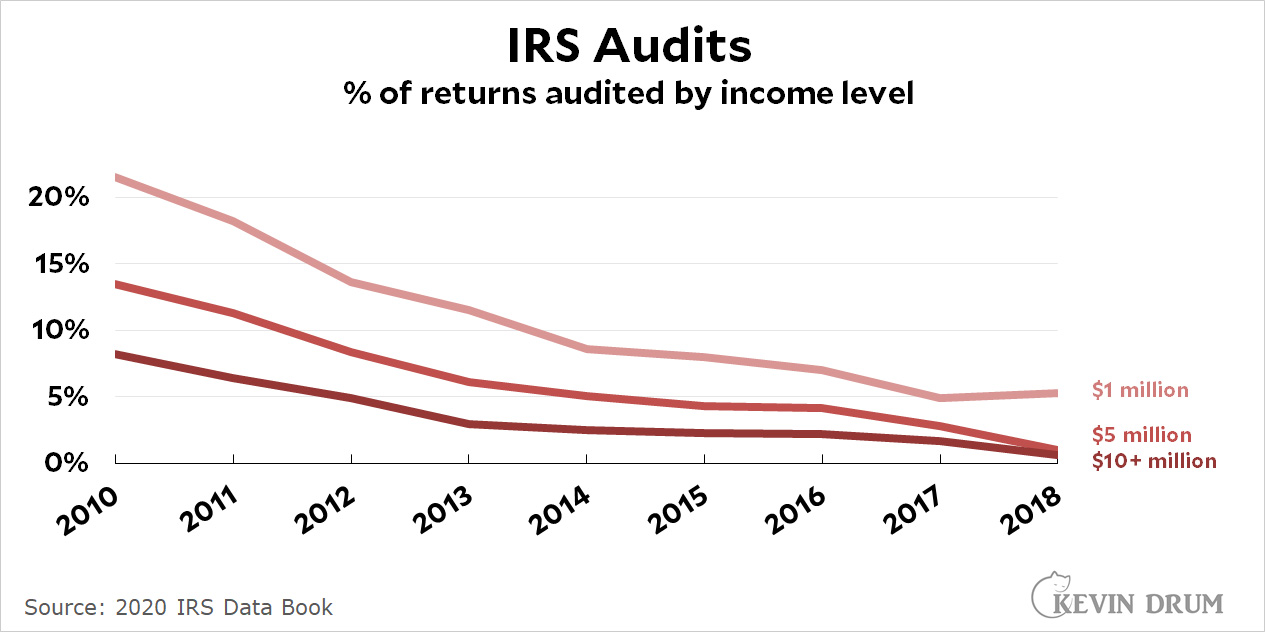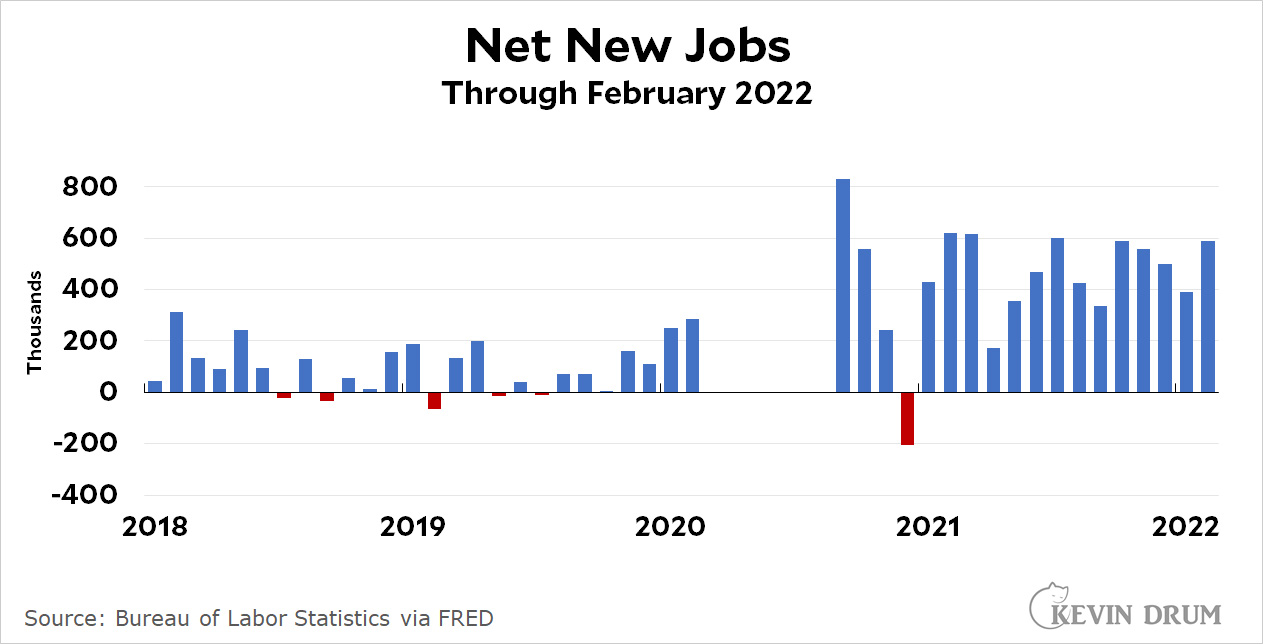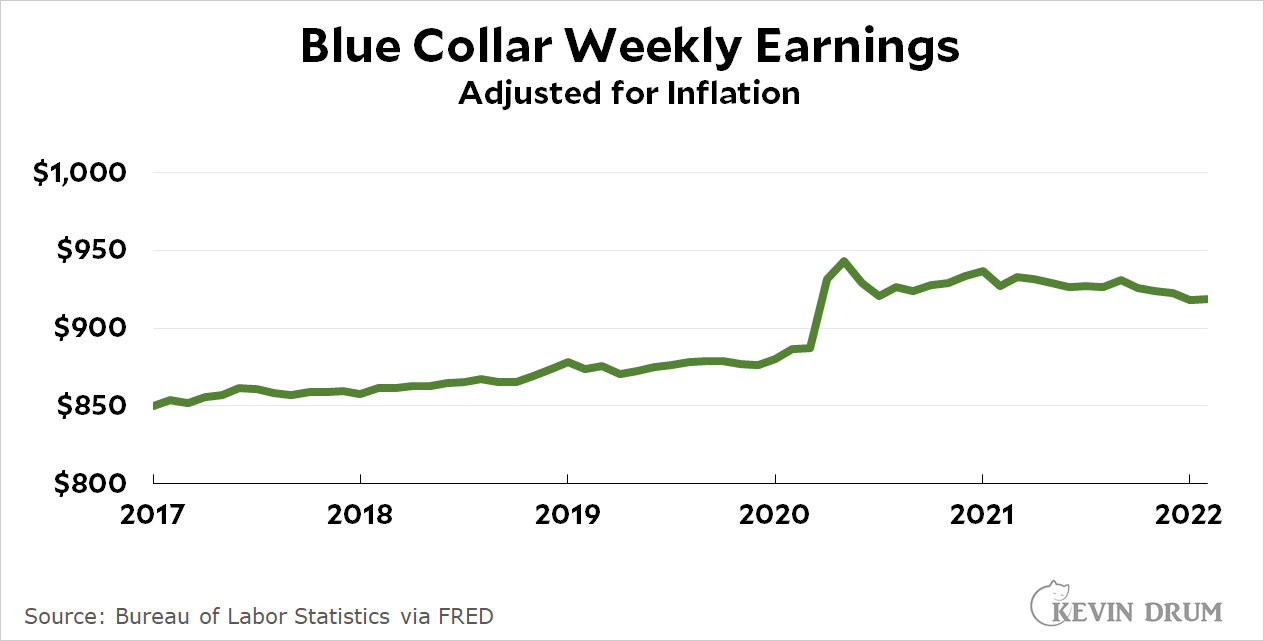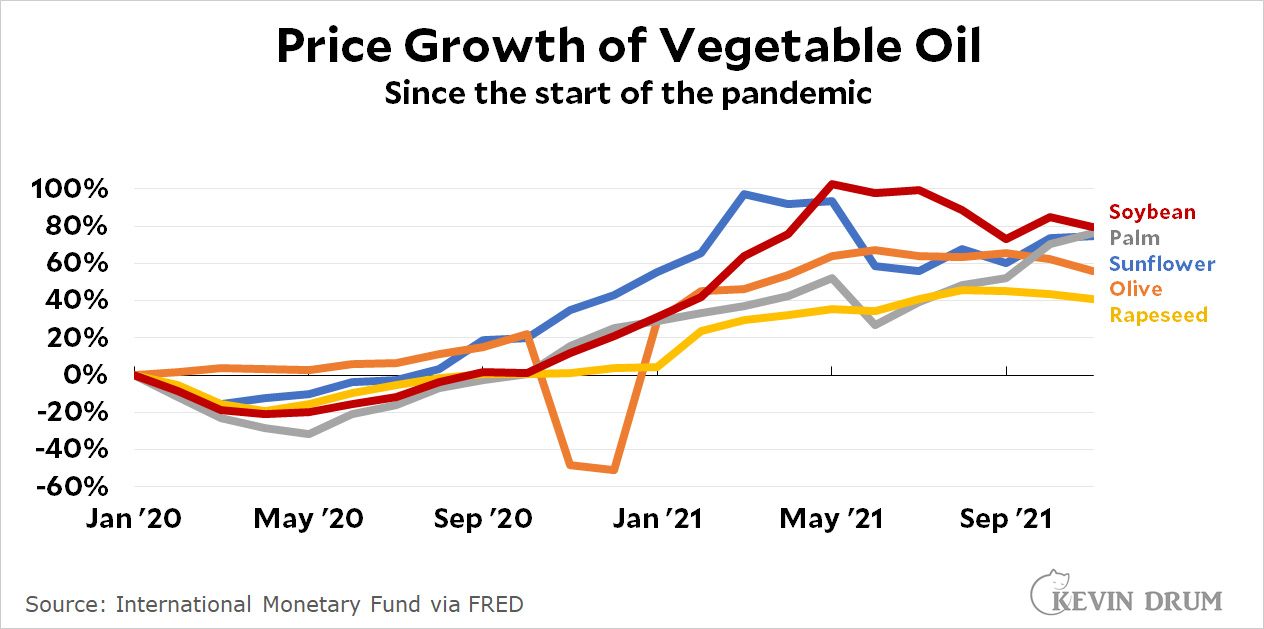Over at Vox today we have yet another piece about "America’s housing crisis." The author proposes a "radical" solution (land taxes) that's not especially radical, but put that aside. The real issue here is that America doesn't have a housing crisis.
I'm not sure why, but I find the new urbanists one of the most annoying groups in the progressive pantheon. It's not because they're wrong, precisely, or because they're meanspirited, or anything like that. There's just a disconnect from reality that seems to motivate so much of what they say and do.
Take America's housing crisis. Here it is:
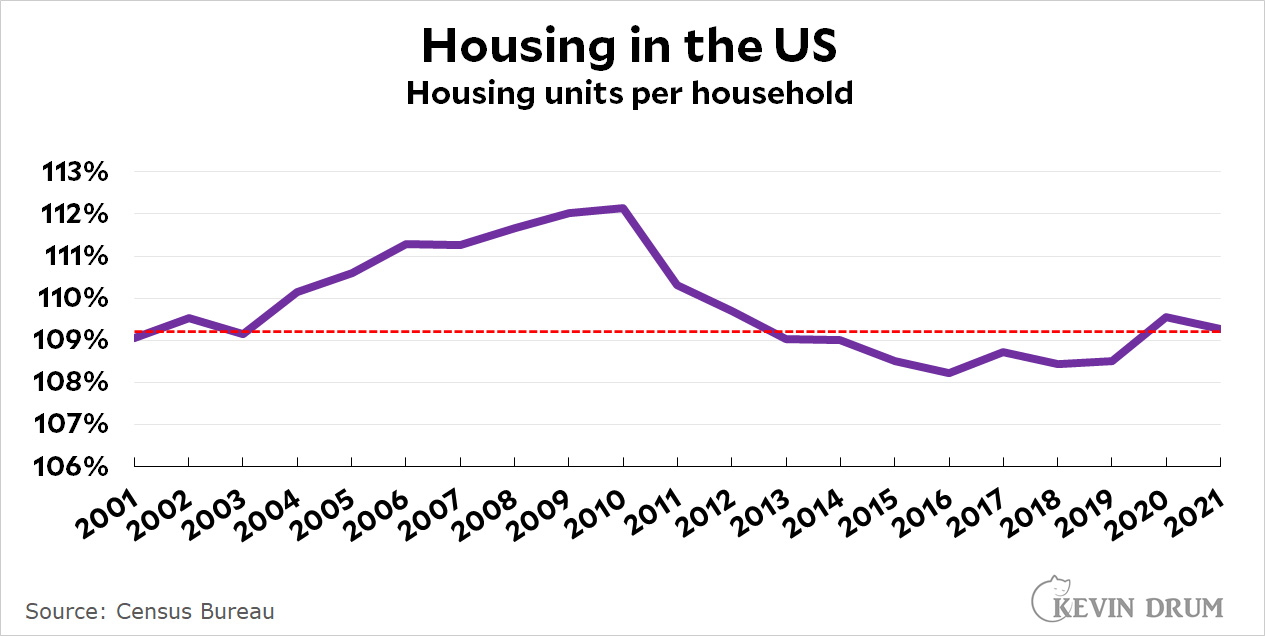 We have as much housing per household as we had in 2001. And just in case you think I'm cheating with this "household" business, here it is per person:
We have as much housing per household as we had in 2001. And just in case you think I'm cheating with this "household" business, here it is per person:
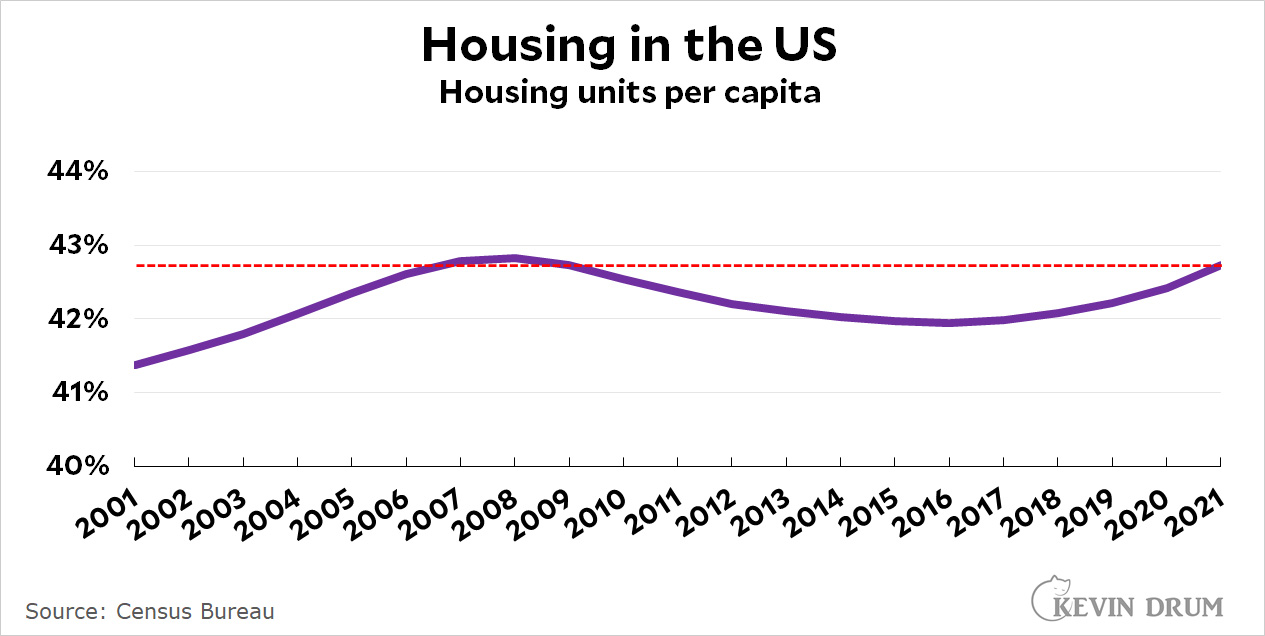 We have more housing per capita than we did in 2001.
We have more housing per capita than we did in 2001.
Now, there are places—California is ground zero—where the amount of housing per person has indeed gone down. But is this a housing crisis? That depends on what you think the "right" amount of housing is. Urbanists consider it obvious that the right amount is about 4 million more than we have, but the people of California have made it crystal clear over the years that they disagree. They don't want more housing.
So selfish of them! Drawing up the ladder after they've gotten on board! Maybe so, but another word for this phenomenon is "democracy." People who live in a place get to vote for the policies they like, and Californians have decided they don't really want more people. Roughly speaking, California hosts about 10% of the population of the country on less than 1% of the land (the 50-mile-wide stretch from San Francisco to San Diego), and Californians think that's enough.
And anyway, California is still a very nice place. If we build 4 million more housing units, what will happen? Rents will go down and lots of people will resume migrating here. Then rents will go back up and we'll have yet another crisis. What's the point?
But this still doesn't really explain why I find the urbanists annoying. Here's my real beef: they are obsessed with big cities. They spend nearly all their time trying to convince us that big, crowded cities should become even bigger and more crowded. Or that suburbs should become big and crowded, just like cities. This is a fantastic waste of time. Residents of big cities don't want to become more crowded and resident of suburbs don't want to become more like cities. They will fight you forever on this. Absolutely forever. The game isn't worth the candle, especially when there are so many other far more useful things we could be devoting our energy to.
So why waste time on this? The urbanists will haul out studies about economic gains, environmental impacts, mass transit, etc., but they massively oversell those benefits and completely ignore the downsides of crowding. Instead, they should be spending approximately 100% of their time promoting policies that would get people out of big cities and into smaller cities that have room to grow.
Honestly, we don't need a bigger New York or a bigger Los Angeles. But we might need a bigger Flagstaff or a bigger Knoxville. That should be the central goal of the urbanists. I don't understand why it isn't.

